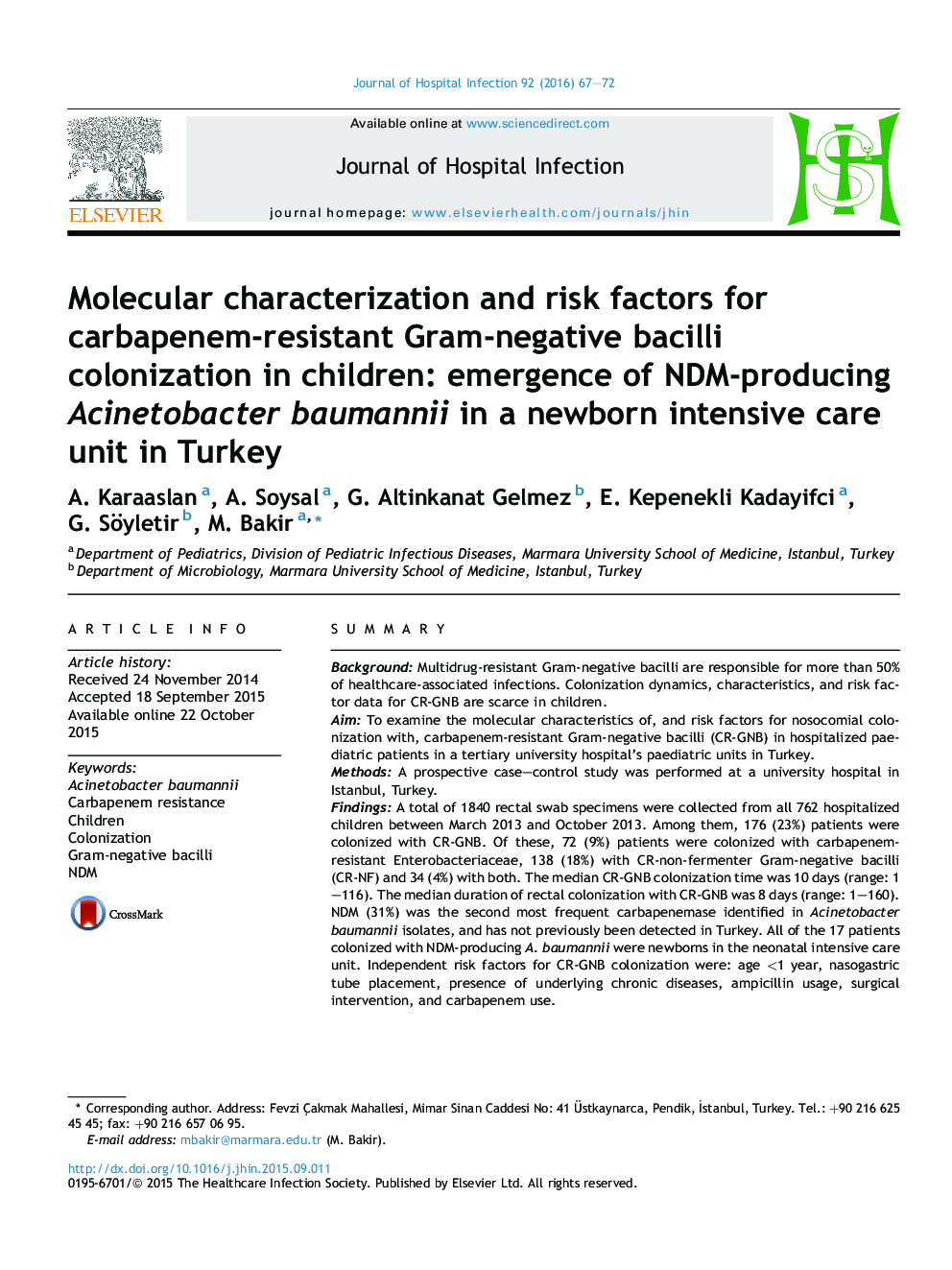| Article ID | Journal | Published Year | Pages | File Type |
|---|---|---|---|---|
| 3371426 | Journal of Hospital Infection | 2016 | 6 Pages |
SummaryBackgroundMultidrug-resistant Gram-negative bacilli are responsible for more than 50% of healthcare-associated infections. Colonization dynamics, characteristics, and risk factor data for CR-GNB are scarce in children.AimTo examine the molecular characteristics of, and risk factors for nosocomial colonization with, carbapenem-resistant Gram-negative bacilli (CR-GNB) in hospitalized paediatric patients in a tertiary university hospital's paediatric units in Turkey.MethodsA prospective case–control study was performed at a university hospital in Istanbul, Turkey.FindingsA total of 1840 rectal swab specimens were collected from all 762 hospitalized children between March 2013 and October 2013. Among them, 176 (23%) patients were colonized with CR-GNB. Of these, 72 (9%) patients were colonized with carbapenem-resistant Enterobacteriaceae, 138 (18%) with CR-non-fermenter Gram-negative bacilli (CR-NF) and 34 (4%) with both. The median CR-GNB colonization time was 10 days (range: 1–116). The median duration of rectal colonization with CR-GNB was 8 days (range: 1–160). NDM (31%) was the second most frequent carbapenemase identified in Acinetobacter baumannii isolates, and has not previously been detected in Turkey. All of the 17 patients colonized with NDM-producing A. baumannii were newborns in the neonatal intensive care unit. Independent risk factors for CR-GNB colonization were: age <1 year, nasogastric tube placement, presence of underlying chronic diseases, ampicillin usage, surgical intervention, and carbapenem use.ConclusionThis is the first description of NDM in A. baumannii in newborn units in Turkey. Carbapenem usage is a common independent risk factor for both CRE and CR-NF colonization, which underscores the importance of antibiotic stewardship programmes.
